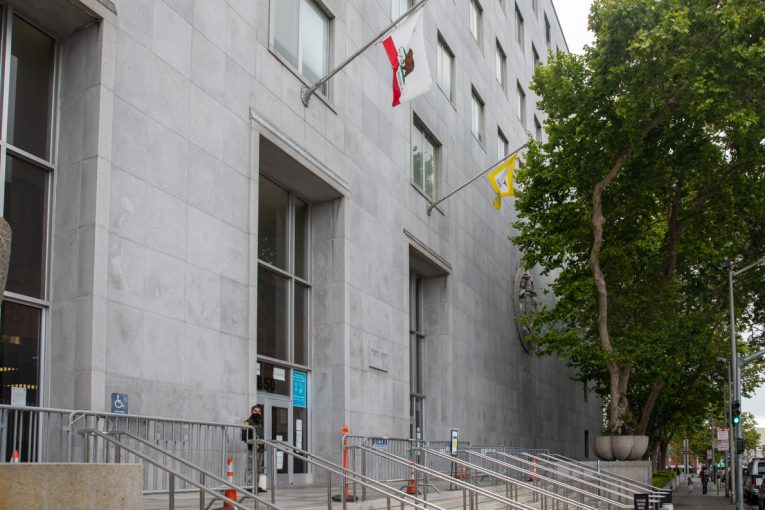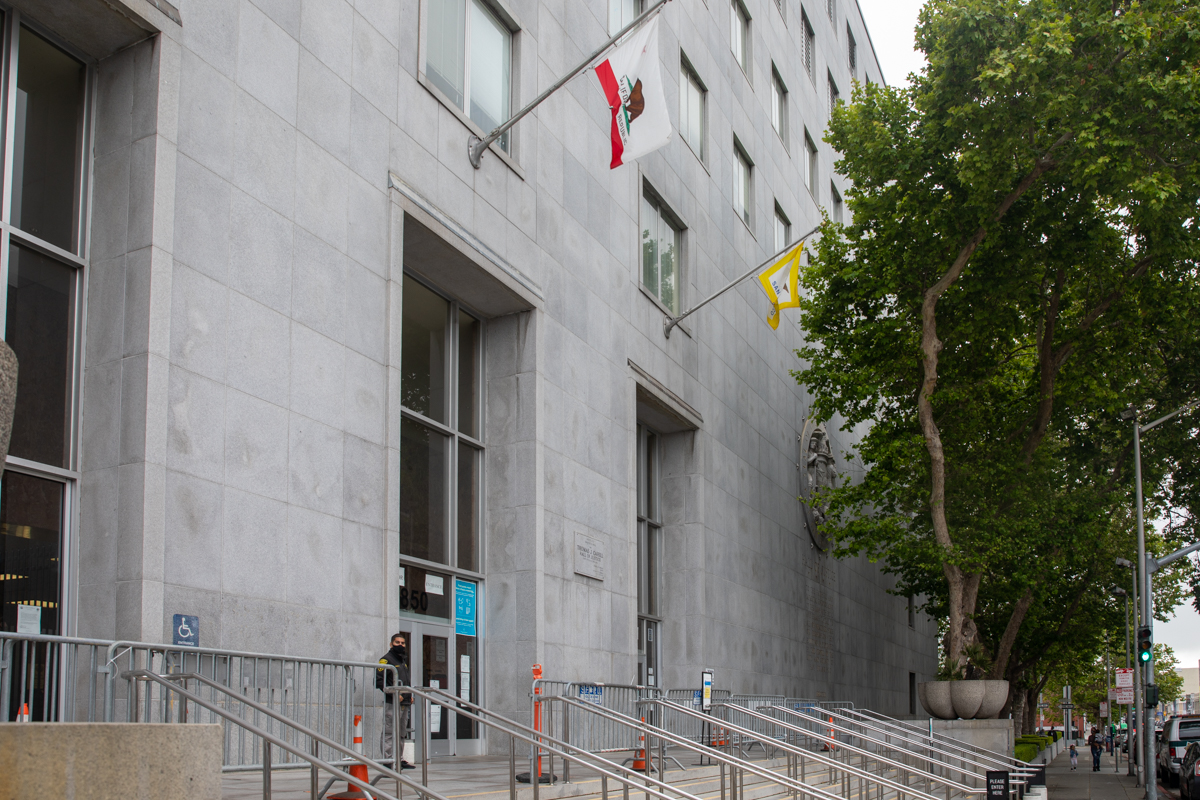

By Paige Laver
SAN FRANCISCO, CA – John Gough was sentenced here this past week in federal court by U.S. District Judge Charles Breyer to three years in federal prison for a gun case out-of-store robbery, with a credit for 14 months spent in pretrial incarceration.
The sentence Gough received is seen as a victory for the defense, and San Francisco District Attorney Chesa Boudin because federal prosecutors originally asked for four years.
The case clearly shows how criminal cases are being treated between the Dept. of Justice in which this case was originally filed under the Trump Administration and SFDA Chesa Boudin—the SFDA office has actively sought alternatives to imprisonment and better solutions for incarcerated individuals post and pre-incarceration.
 Gough, 22, a resident of San Francisco, was arrested on federal charges of possession of a firearm in December 2020, and has remained in Santa Rita Jail since his arrest.
Gough, 22, a resident of San Francisco, was arrested on federal charges of possession of a firearm in December 2020, and has remained in Santa Rita Jail since his arrest.
In the weeks prior to Gough’s arrest on a federal warrant, he was scheduled to be released from San Francisco’s jail and transferred to a halfway house after qualifying for a mental health diversion program there.
In November 2020, one month before his federal charge, behavioral health and services officials noted that Gough was “completely medication adherent since starting on medications while in custody and there have not been any behavioral issues noted.”
According to the court record, the behavioral health and services officials also noted that Gough had no reports of violent behavior since he’d been in custody.
Before Gough could be transferred to the halfway house under the SF deal, he was charged by the Northern District of California U.S. Attorney’s office.
Rather than turning Gough over to the U.S. Marshals, the San Francisco Jail released him, where he remained free for three months until his arrest and was taken into federal custody after showing up to a meeting with his parole agent.
The federal gun charge stems from a Christmas Eve incident where he robbed a McDonald’s and pulled back the hammer of his revolver when the clerk denied him any cash.
When he was questioned by police authorities afterwards, he did not have memory or any recollection of these events, where he explained to the police the mental illness he suffers from, and added that “cocaine is a hell of a drug,” according to the prosecutors.
Federal authorities linked Gough to two other robberies including a 7-Eleven robbery where Gough asked the clerk, “You going to die over this money?” The clerk responded, “We all got to die sometime.”
The feds asked for a three-year, 10-month prison term, and noted Gough has five prior arrests in connection with violent crimes, including multiple hit and runs and an assault with a deadly weapon.
Assistant U.S. Attorney Leif Lautch stated in a sentencing memo that “Gough’s string of armed robberies and his history of violent conduct present a real threat to the public.”
The USA prosecutor continued, “The facts surrounding this incident, Gough’s criminal history, his use of a variety of different weapons against victims, and the failure of a prior prison term to deter his criminal conduct all warrant a term to deter his criminal conduct all warrant a substantial term of imprisonment here.”
But, as SFDA Boudin often states, prison does not deter crime. And it might be so in Gough’s case, where repeated prison stints have not stopped his criminal activities.
Gough’s attorney, assistant federal public defender Hanni Fakhoury, wrote in court records that his client was a victim of severe child abuse, and was diagnosed with mental illness at the age of 14, by the staff at juvenile hall.
Fakhoury called Gough’s mental illness the underlying cause of his criminal history, “between his drug use and the constant switch of medications, he would regularly have manic episodes.”
Fakhoury wrote “Mr. Gough accepts responsibility for his mistake and feels deep regret for his actions and particularly the effect it had on the McDonald’s workers. He is eager to get back into the kind of dual diagnosis treatment program he thought he was going into when his case was in state (SF) court.”

